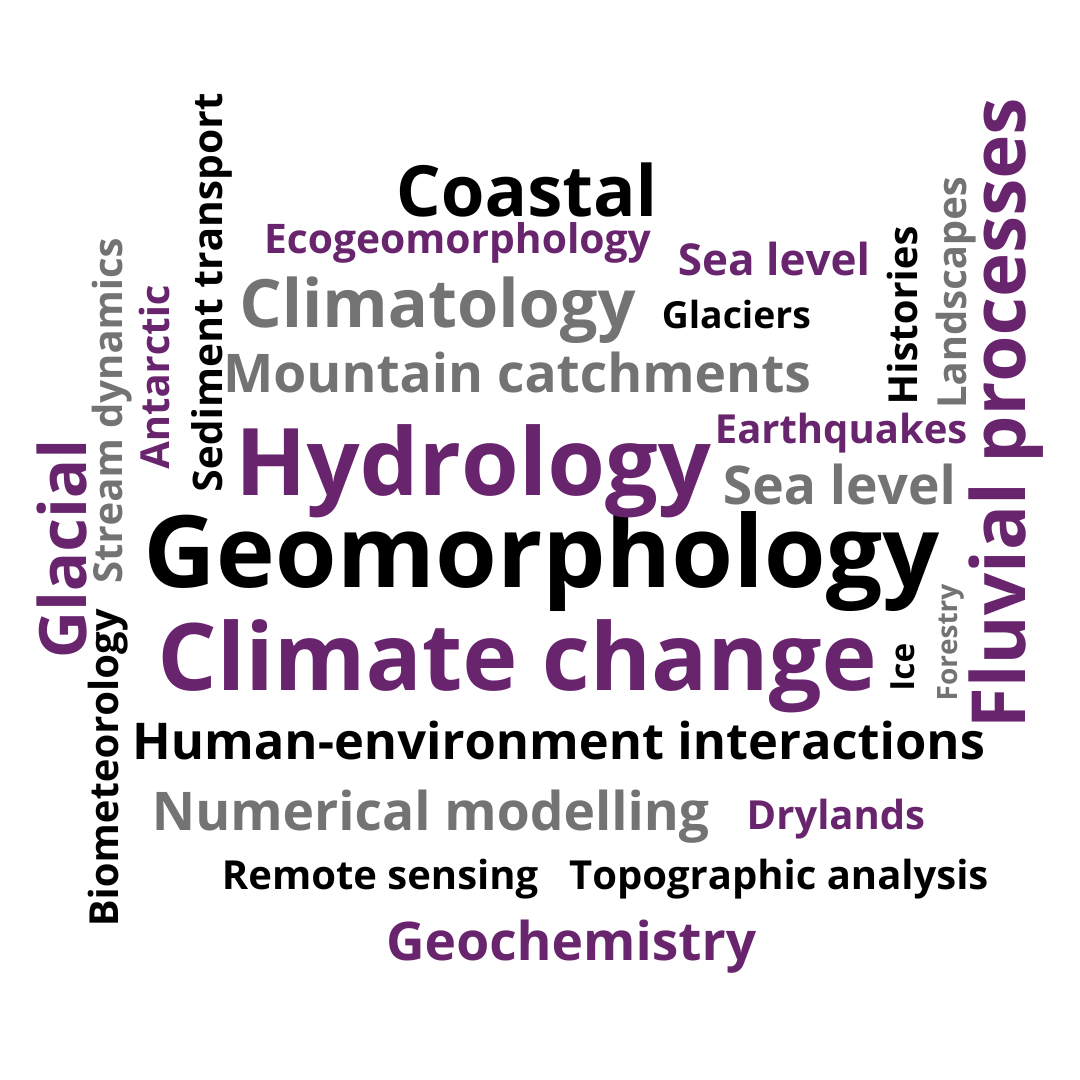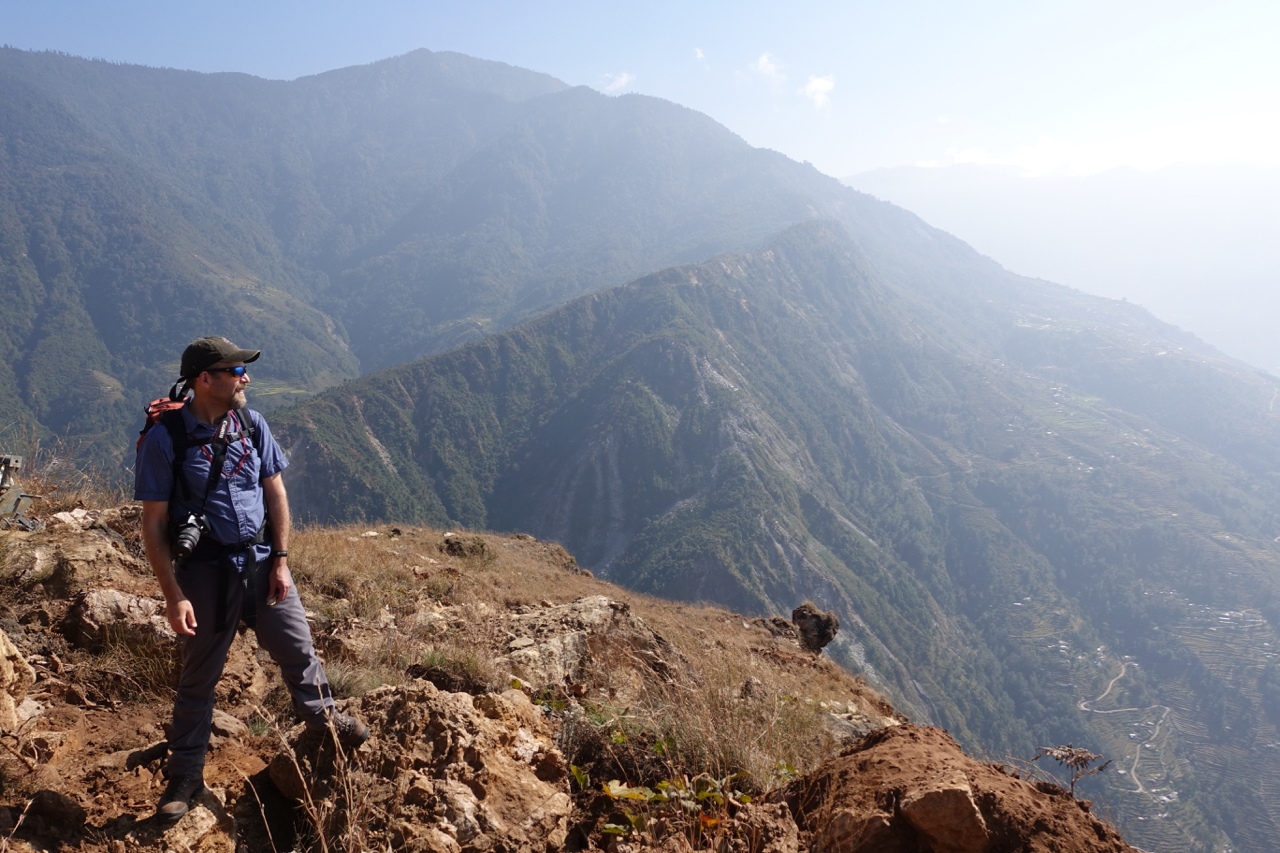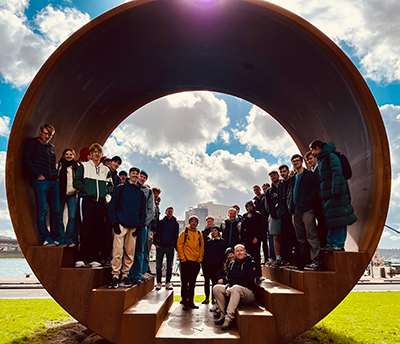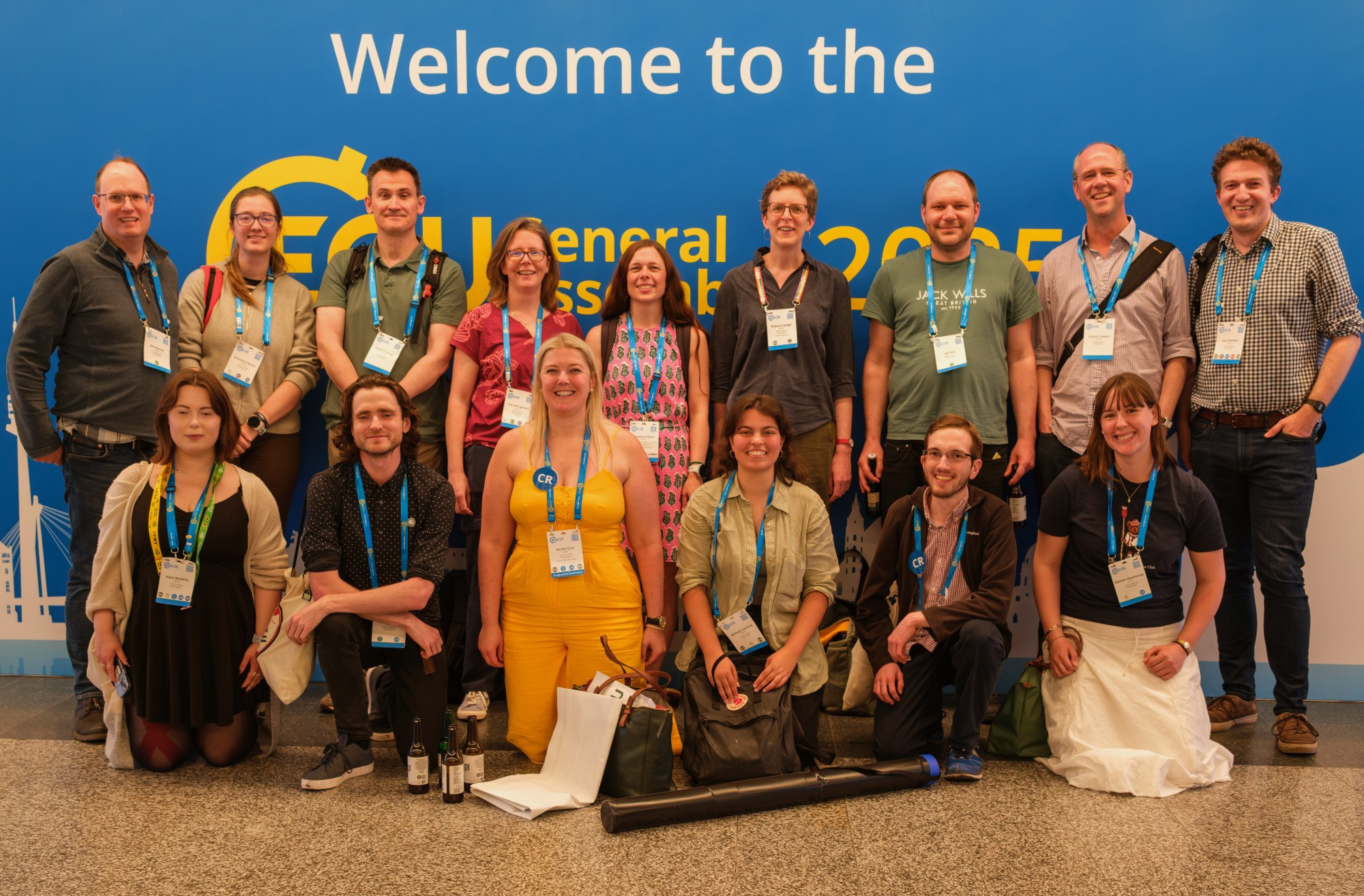Hazards and Surface Change
The principal aim of the Hazards and Surface Change cluster is to advance holistic approaches to understanding hazards as the outcome of recurrent or chronic physical processes that occur within specific societal settings, rather than as one-off events. In particular, we are focused on three interrelated challenges:
- Understanding the physical mechanisms of mass movements, coupling novel laboratory and field-based approaches with numerical modelling, to allow assessment of slope stability at societally-relevant scales.
- Quantitative estimation of the long-term and large-scale effects of mass movements on the sediment and terrestrial carbon cycles, including systematic assessment of how debris flows and earthquake-triggered landslides mobilise and transport sediment and organic carbon in montane environments.
- Investigation of how scientific understanding of hazards - particularly around earthquakes, mass movements, and sea-level change - is used in decision-making and management processes - in particular, how ‘expert’ and local knowledge of hazards and surface change can coexist and inform both policy and practice.
For more details, please contact: Professor John Wainwright


Cluster Members
| Staff Name | Research Interest |
|---|---|
| Mike Bentley | Antarctic environmental history, sea-level change, glacial geomorphology |
| Matt Brain | Engineering geomorphology, sediment compaction, coastal geomorphology, landslide mechanics |
| Isabela Bovolo | Tropical hydro-climatology, Hydrology, Climate and Climate Change |
| Dave Bridgland | Fluvial history, Quaternary, Palaeontology/Archaeology |
| Fiona Clubb | Tectonic and fluvial geomorphology, Topographic analysis, Landscape evolution |
| Nick Cox | Statistical applications in Geography (e.g. geomorphology, hydrology, climatology) |
| Alex Densmore | Mountain building, Earthquakes, Landsliding, Hazard-risk-resilience |
| Danny Donoghue | Airborne and satellite remote sensing, Remote sensing for archaeology, forestry and coastal change |
| Simon Engelhart | Sea-level change, Earthquake induced Tsunami/Storm Surge/Vertical Land Motion, Holocene |
| Rich Hardy | Open channel hydraulics, Sediment transport, Numerical modelling |
| Rebecca Hodge | Fluvial geomorphology, Sediment transport, Numerical modelling |
| Luke Jackson | Sea-level change, Coastal Impacts, Climate Change |
| Stewart Jamieson | Glacial geomorphology, Ice stream dynamics, Landscape evolution |
| Erin McClymont | Past Environmental and Climate Change, Organic Geochemistry |
| Glenn McGregor | Synoptic climatology, Biometeorology, Hydroclimatology, Climate and society |
| Nick Rosser | Rockfalls/landslides, Deformation, Risk |
| Chris Stokes | Glaciers, Climate Change, Ice stream dynamics, Antarctica |
| Pete Talling | Submarine Geohazards, Ocean dynamics |
| Laura Turnbull-Lloyd | Ecohydrology and ecogeomorphology, land degradation, drylands, connectivity |
| John Wainwright | Human-Environment Interactions, Hydrology, Geomorphology |
| Jeff Warburton | Fluvial geomorphology, Mountain sediment systems, Geocryology |
Research Clusters
Our research clusters are focused on ideas. They act as centres of gravity for collective research activity and provide the foundational means through which we generate the diversity, vibrancy and innovation that underpins our research.
Impacting the World
Our research culture is set up to generate research that is both intellectually innovative and impactful, addressing the key global challenges of our time and providing wider public and societal benefit.
Our Research Community
Our academic researchers and research staff are completing a wide range of research that is Impacting the World, including work that is relevant to the pursuit of the Sustainable Development Goals, and publishing literature that is changing our understanding of the world.
Virtual Library
Much of our research takes final form in high-impact articles or books. But a considerable amount of our activity takes place in other mediums.
Contact Us
Founded in 1928, the Department of Geography at Durham University is one of the leading centres of geographical research and education in the world.
Department of Geography
Postgraduate Study
Durham University
Lower Mountjoy
South Road, Durham
DH1 3LE, UK
Tel: +44 (0)191 33418000


/prod01/prodbucket01/media/durham-university/departments-/geography/Matt_Couchmann-3872X1296.JPG)



.png)


